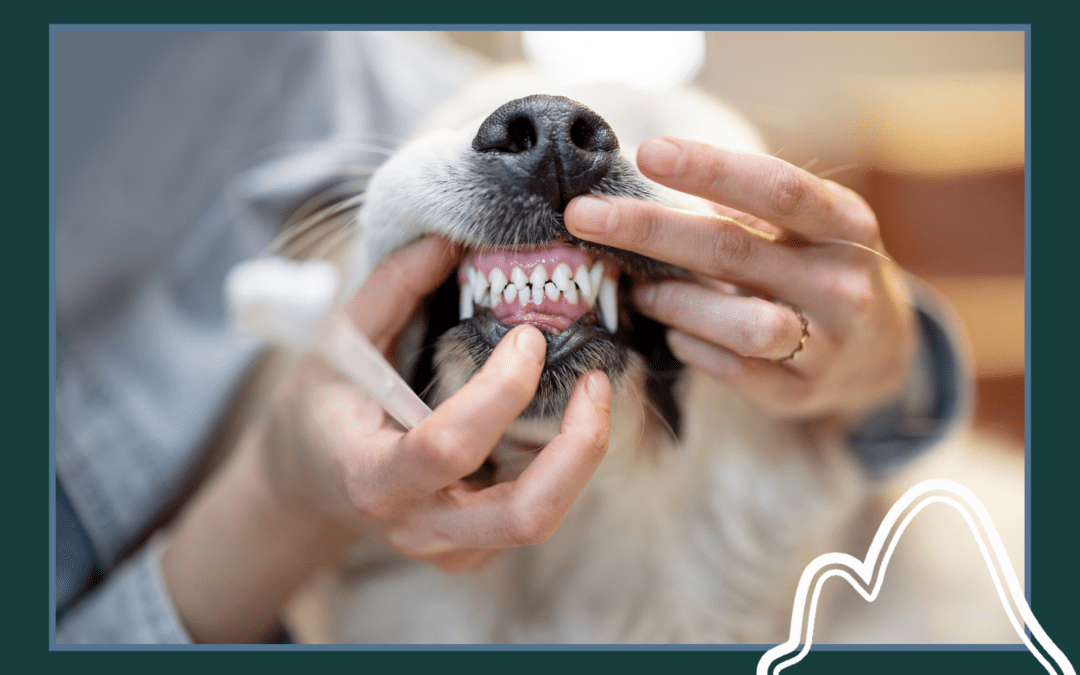Beyond Fresh Breath – Why Dental Health Matters:
While we may adore our furry friends’ toothy grins, it’s essential to understand that dental health goes beyond aesthetics for dogs. Poor dental hygiene can lead to a myriad of health problems, ranging from bad breath to serious medical conditions. Here are some reasons why prioritizing your dog’s dental health is crucial:
1. Preventing Dental Diseases: Dental diseases, such as periodontal disease and gingivitis, are prevalent among dogs. If left untreated, these conditions can result in tooth loss, gum infections, and even systemic health issues as harmful bacteria enter the bloodstream.
2. Pain Management: Imagine enduring toothaches without the ability to communicate your discomfort. Dogs experience dental pain similarly, but they may not show obvious signs until the pain becomes severe. Regular dental care helps identify and address dental issues early, preventing unnecessary suffering.
3. Improving Overall Health: Research has shown a strong link between oral health and systemic health in dogs. Dental problems can contribute to issues like heart disease, kidney disease, and diabetes. By maintaining good oral hygiene, you’re also promoting your dog’s overall well-being.
Tips for Maintaining Your Dog’s Dental Health:
Now that we understand the importance of dog dental health, let’s explore practical ways to keep those pearly whites in top condition:
1. Brushing: Just like humans, dogs benefit from regular teeth brushing. Use a soft-bristled toothbrush and dog-specific toothpaste to gently clean your dog’s teeth. Aim for daily brushing or at least several times a week to remove plaque and prevent tartar buildup.
2. Dental Chews and Toys: Chew toys and dental treats designed to promote dental health can be beneficial. These products help massage the gums, scrape away plaque, and freshen breath. Look for options approved by veterinary dentists to ensure they’re safe and effective.
3. Professional Dental Cleanings: Regular visits to the veterinarian for professional dental cleanings are crucial. Your vet can perform a thorough examination, clean your dog’s teeth, and address any underlying dental issues. Depending on your dog’s age and dental health, your vet may recommend cleanings annually or more frequently.
4. Balanced Diet: Nutrition plays a vital role in dental health. Feed your dog a balanced diet that supports oral health, avoiding excessive sugary treats that can contribute to tooth decay. Additionally, incorporating dental-specific diets or dental chews into your dog’s routine can help maintain oral hygiene.
5. Regular Check-ups: Monitor your dog’s dental health with routine check-ups at the vet. Your vet can identify early signs of dental problems and provide guidance on the best preventive care measures for your furry friend.
As responsible pet owners, it’s our duty to prioritize all aspects of our dog’s health, including their dental well-being. By implementing simple yet effective dental care practices, we can ensure our canine companions enjoy a lifetime of healthy smiles and wagging tails. Remember, a little effort in maintaining your dog’s dental health today can lead to significant benefits in the long run, ensuring they live their best, happiest lives by your side.

